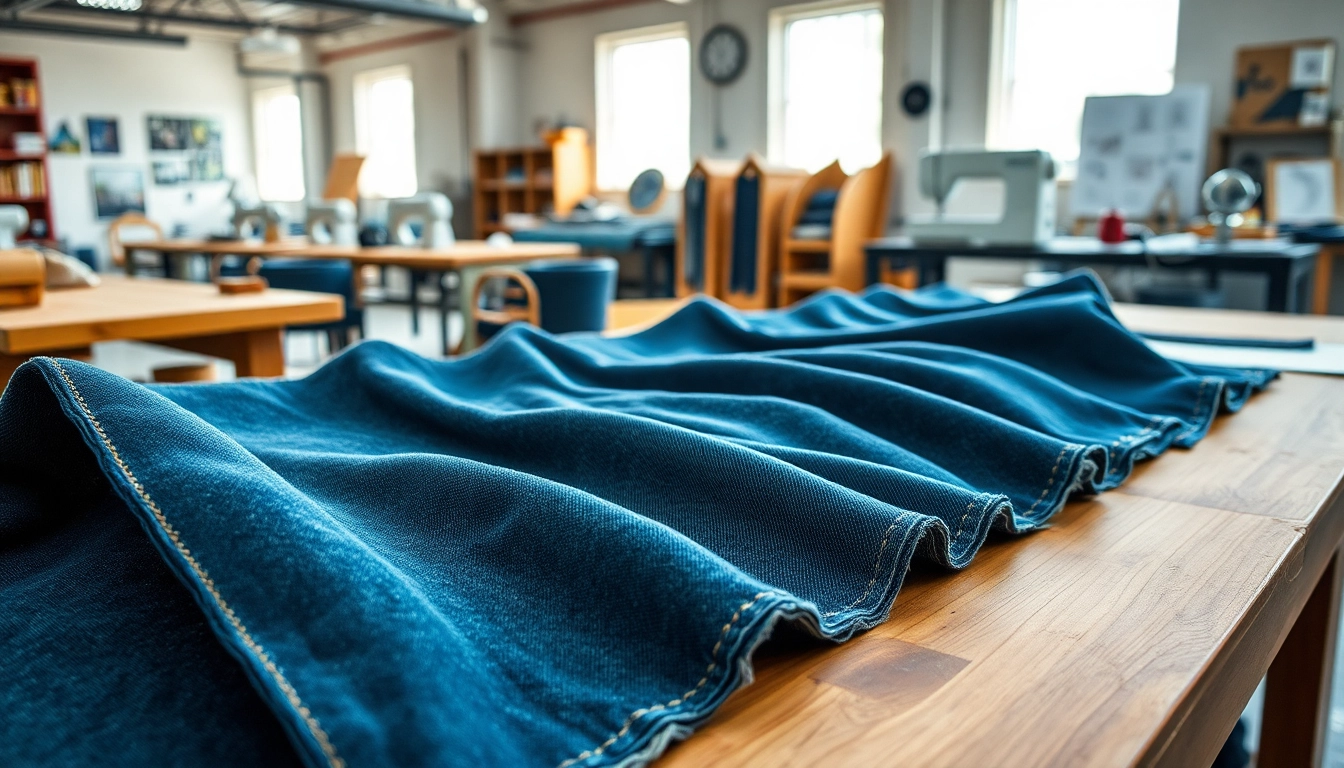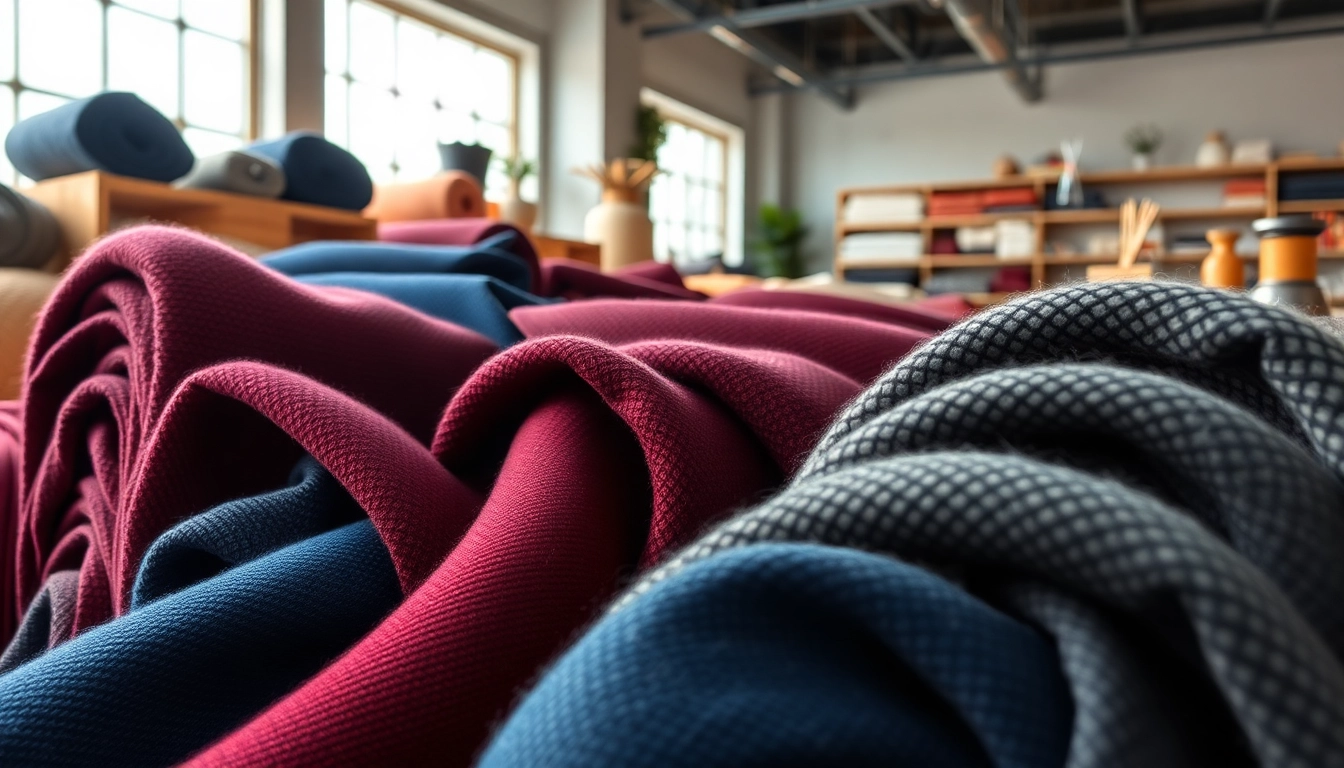Understanding Jeans Fabric Manufacturers
What Makes a Quality Jeans Fabric
Quality jeans fabric stands as the backbone of every exceptional pair of denim. When discerning the quality of fabric, several parameters come into play: the type of cotton used, the weave pattern, the weight of the fabric, and the finishing techniques applied. High-quality denim is typically made from long-staple cotton, which offers strength and durability. This results in a fabric that withstands the test of time, maintaining its structure even after countless washes.
The weave pattern of the denim also contributes to its overall quality. Twill weave, particularly the 3/1 right-hand twill, is a hallmark of traditional denim, creating the diagonal ribbing that is iconic to denim. This weave enhances the durability and creates that classic “denim feel.” Moreover, the fabric must possess a certain weight; typically, the heavier the fabric, the more robust it will be, making it less prone to wear and tear. If you’re in search of these characteristics, many jeans fabric manufacturers excel in offering superior-quality fabrics.
Types of Denim Fabrics Offered
Denim fabric varies widely, catering to a multitude of styles and functional needs. Key types include:
- Raw Denim: Unwashed and untreated, prized for its ability to form unique fades over time.
- Selvedge Denim: Made on vintage shuttle looms, characterized by its clean edges and tighter weave.
- Stretch Denim: Incorporates elastane for comfort and flexibility, ideal for fitted styles.
- Washed Denim: Pre-treated for a softer feel and varied color options, often used in fashion-forward designs.
From casual to high-end applications, the right fabric selection is crucial for achieving the desired effect and performance from your denim garments.
The Role of Innovation in Denim Manufacturing
Innovation in denim manufacturing has been pivotal in meeting modern consumer demands. The industry has embraced new technologies that focus on sustainability and efficiency. For instance, waterless dyeing processes have emerged, significantly reducing water consumption during production. Additionally, advancements in fabric technology, such as recycled fibers and the integration of smart textiles, are changing the landscape of denim.
These innovations are not only about enhancing functionality but also about appealing to environmentally conscious consumers. Brands that stay ahead of these trends by collaborating with innovative jeans fabric manufacturers position themselves favorably in competitive marketplaces.
Key Factors for Choosing Jeans Fabric Manufacturers
Assessing Fabric Quality and Durability
When selecting a manufacturer, assessing the quality and durability of their fabric is paramount. Look for certifications such as OEKO-TEX, which ensures that textiles are free from harmful substances. Requesting fabric samples can also provide insight into the texture and weight, helping to gauge its suitability for specific products. A reputable manufacturer will be happy to provide data on their fabric’s lifespan, wear resistance, and care instructions.
Price Considerations and Product Range
Price is undeniably a significant factor when choosing between jeans fabric manufacturers. While high-quality denim can come at a premium, understanding the cost breakdown can help in making informed decisions. Consider not only the price per yard but also the quality factors that contribute to the overall longevity of the fabric. This can make a more expensive option actually more economical in the long run.
Moreover, choosing a manufacturer that offers a diverse range of fabrics allows designers and brands to experiment with different styles and innovations, thereby enhancing their product offerings and appealing to a broader audience.
Customer Service and Support
The level of customer service and support provided by jeans fabric manufacturers should not be underestimated. Good communication is critical, particularly in larger production orders where material specifications and timelines need meticulous coordination. Manufacturers that offer dedicated account management and quick responses to inquiries can significantly alleviate potential issues in the supply chain.
Sourcing Denim from Leading Manufacturers
Top Recommendations for Fabric Suppliers
Sourcing denim from well-regarded manufacturers is crucial for maintaining a high standard in your product line. Research should include a review of customer feedback on their experiences and product quality. Networking at textile trade shows, accessing databases, and reading industry publications can provide insights into reputable suppliers worthy of consideration.
Understanding Import and Export Dynamics
For brands looking to source denim internationally, understanding import and export dynamics is essential. Regulations can vary significantly across borders, affecting shipping times, duties, and compliance standards. It’s vital to partner with manufacturers who have experience navigating these complexities, ensuring that the supply chain runs smoothly without incurring unnecessary costs.
Navigating Trade Regulations
Trade regulations can impact pricing and availability. Familiarity with tariffs and trade agreements is necessary for brands to make informed sourcing decisions. Manufacturers with a global footprint often have compliance teams ensuring adherence to trade laws, providing assurance that your sourcing practices are sustainable and lawful.
Trends in Jeans Fabric Manufacturing
Eco-friendly Practices Among Jeans Fabric Manufacturers
The shift towards eco-friendly textiles is rapidly becoming a defining trait of forward-thinking jeans fabric manufacturers. More companies are adopting sustainable sourcing strategies, utilizing organic cotton, and implementing processes that minimize water use and chemical runoff. Eco-friendly practices not only satisfy consumer demand for responsible production but also align with global sustainability goals.
Technological Advances in Fabric Production
Technological advances play a critical role in shaping denim production, allowing manufacturers to improve fabric performance through innovative techniques. Smart textiles embedded with sensors, moisture-wicking properties, and even antibacterial solutions are pioneering new avenues in denim applications. These developments enhance the comfort and functionality of jeans, appealing particularly to the active and tech-savvy demographic.
The Future of Denim: What to Expect
The future of denim looks poised for transformation. As consumer preferences shift towards personalization and unique editions, customization in fabric design will be increasingly important. Additionally, the incorporation of AI and machine learning in production processes promise further innovation and efficiency, building a bridge between fashion and technology. Staying ahead of these trends will provide brands with a competitive edge in a saturated marketplace.
Building Relationships with Jeans Fabric Manufacturers
Networking and Industry Events
Building strong relationships with fabrics manufacturers starts with networking. Attending industry events such as textile fairs and trade expos offers invaluable opportunities to meet suppliers, understand their capabilities, and foster connections. These interpersonal relationships can lead to better pricing, priority service, and enhanced collaboration on innovative projects.
Collaborative Opportunities for Designers
Collaboration with manufacturers often leads to exciting new developments in denim. Designers can work directly with manufacturers to create exclusive fabric blends or treatments, ensuring their products stand out in the market. Engaging in this collaborative dialogue can also lead to feedback loops that help manufacturers refine their offerings based on real-world performance and aesthetic preferences.
Evaluating Long-term Partnerships
Long-term relationships can yield significant benefits. Evaluating potential partners through trial projects helps gauge the quality of materials and reliability in production timelines. Over time, established relationships enable easier negotiations and potentially better pricing, creating a mutually beneficial cooperation.



